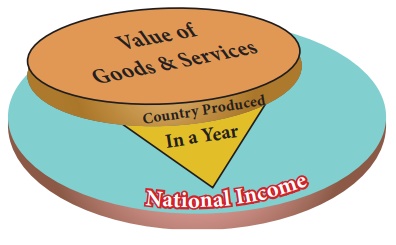Economics - Definitions and Meaning of National Income | 12th Economics : Chapter 2 : National Income
Chapter: 12th Economics : Chapter 2 : National Income
Definitions and Meaning of National Income
National Income
Introduction
National Income provides a comprehensive measure of the economic
activities of a nation. It denotes the country’s purchasing power. The growth
of an economy is measured by the rate at which its real national income grows
over time. National income thus serves as an instrument of economic planning.
Further, national income is one of the most significant macroeconomic
variables. Thus, a clear understanding of the meaning, concepts, measurement
and uses of national income is essential.
Nobel laureate Simon Kuznets first introduced the concept of
national income.
Meaning of National Income
In common parlance, National Income means the total money value of
all final goods and services produced in a country during a particular period
of time (one year).

Definitions
“The labour and capital of a country acting on its natural
resources produce annually a certain net aggregate of commodities, material and
immaterial including services of all kinds. This is the true net annual income
or revenue of the country or national dividend”.
-Alfred Marshall.
GDP and its detractors.
The welfare of a nation can scarcely be inferred from a
measurement of national income as defined by the GDP... goals for more
growth should specify of what and for what.
Simon Kuznets, (Creator of GDP) 1932

“The net output of the commodities and services flowing during the
year from the country’s productive system into the hands of the ultimate
consumers or into net addition to the country’s stock of capital goods”.
- Simon Kuznets.
Related Topics